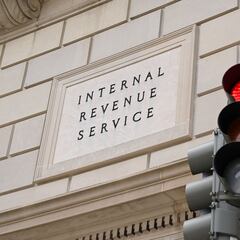IRS reveals who it is targeting for audits: which taxpayers should not worry?
The new IRS funding announced in the Inflation Reduction Act will increase audits on America’s richest while trying to avoid pressuring the average Joe.


The Internal Revenue Service (IRS) hopes to rake in an extra $100 billion in revenue over the next ten-years. It aims to do this by increasing auditing levels to ensure taxpayers are not hiding their money from the federal government. Understandably poorer Americans are worried about prying eyes into their finances, while ignoring the country’s richest.
However, the new head of the organisation has made it clear that Americans at an average salary will not be targeted, while those earning substantially more will be.
“We have years ahead of us where we will be 100% focused on building capacity for higher income individuals and corporations. During this time, the audit rates of average taxpayers will not increase,” the IRS’ new commissioner, Danny Werfel said.
“People who get W-2s or Social Security payments, or have a small business, should not be worried about some new wave of IRS audits. We’re taking that off the table,” he added.
"But the second most effective use [of IRS time] is auditing households at the opposite end of the scale: low-income people who claim the earned-income tax credit, which yields nearly $3,000 per hour." https://t.co/jwoL3hH4Ll pic.twitter.com/zH1fiXLWa7
— Scott Lincicome (@scottlincicome) April 7, 2023
An IRS audit is an examination of an individual’s or business’s tax return to verify that the reported income, deductions, and credits are accurate and in compliance with tax laws. An audit can be undertaken for a variety of reasons, such as random selection, discrepancies or errors in the tax return, or certain red flags that trigger suspicion.
Who will be targeted?
Related stories
The focus will be on taxpayers earning more than $400,000 in a year, which will include wealthy individuals and large corporations.
It is also about increasing tax enforcement for wealthy & complex tax evaders who today do not pay what they owe.
— Natasha Sarin (@NatashaRSarin) April 6, 2023
As the IRS has been gutted, audit rates have declined to…well, for partnerships, ~0.
And audits have fallen ~90% for ppl making $1M+, down to just .7% in 2019. pic.twitter.com/PWfSKp1xPK
The IRS was given a major boost with the signing of the Inflation Reduction Act in August 2022. The bill allocated an extra $80 billion of support to the tax agency, $45.6 billion of which is going towards this tax enforcement. Werfel was brought before a Senate committee to justify the plans and to demand that low-income Americans will not be targeted.

